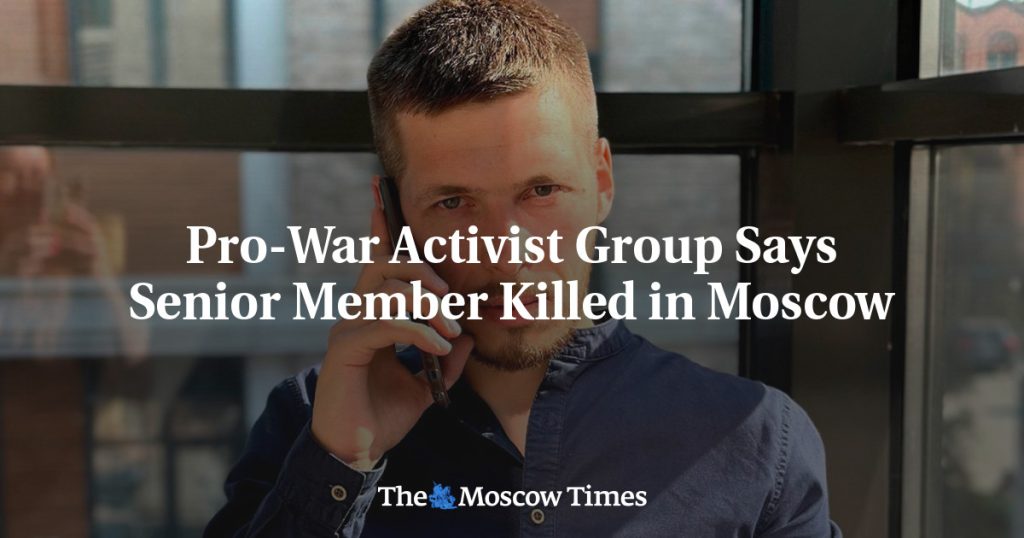A tragic incident has occurred in Moscow as a senior member of the Zov Naroda group, Anton Yegovtsev, was killed near his home. Zov Naroda is known for reporting on public figures who oppose Russia’s invasion of Ukraine. Yegovtsev was reportedly stabbed to death, with an investigation currently underway to determine the exact circumstances surrounding his death. The pro-Kremlin broadcaster Ren TV revealed that Yegovtsev had been receiving threats from an admirer of his wife for months, and the assailant had allegedly been involved in previous conflicts with Yegovtsev.
Zov Naroda had previously urged the authorities to designate the popular exiled rock band Bi-2 as “sponsors of terrorism” for condemning the war in Ukraine. Yegovtsev’s widow, Yekaterina, described the brutal nature of his death, stating that he was “chopped up.” Unconfirmed reports from Telegram channels with links to Russian security services suggested that Yegovtsev’s assailant had been hospitalized after the attack. Russian law enforcement authorities have not officially commented on the incident, leaving many questions surrounding the motive and potential suspects.
The killing of Yegovtsev has shed light on the risks faced by individuals and groups who speak out against Russia’s invasion of Ukraine. Zov Naroda, like many other organizations, has been actively filing complaints to Russian authorities against those who express anti-war sentiments since the invasion began in 2022. Yegovtsev’s tragic death serves as a stark reminder of the dangers faced by those who challenge the pro-Kremlin narrative and advocate for peace and dissent in Russia.
The circumstances surrounding Yegovtsev’s death have sparked outrage and concern among the public and international community. The group’s insistence on reporting and denouncing public figures who oppose Russia’s actions in Ukraine has made them a target for threats and violence. The fact that Yegovtsev had been receiving threats for months prior to his death raises questions about the level of protection and support offered to individuals who are targeted for their beliefs and activism.
As the investigation into Yegovtsev’s death unfolds, there will likely be a heightened emphasis on the risks faced by activists, journalists, and dissenters in Russia. The climate of fear and intimidation that has been perpetuated by the Russian government’s crackdown on anti-war sentiment has created a dangerous environment for those who speak out against the invasion of Ukraine. The tragic loss of Yegovtsev serves as a stark example of the potential consequences of challenging the status quo in Russia and advocating for peace and human rights in the face of adversity.
Moving forward, the legacy of Yegovtsev and the work of Zov Naroda will continue to resonate as a reminder of the ongoing struggle for freedom of expression and democracy in Russia. The international community must remain vigilant in condemning acts of violence and intimidation against those who dare to speak out against injustice and oppression. Yegovtsev’s death is a tragic reminder of the sacrifices made by individuals who put their lives on the line to defend their beliefs and challenge the systems of power that seek to silence dissent. Efforts must be made to ensure that justice is served in the case of Yegovtsev and that steps are taken to protect activists and journalists who are at risk of harm for speaking truth to power.


